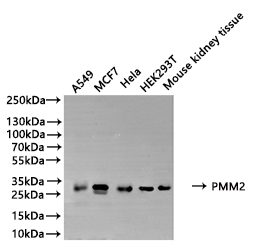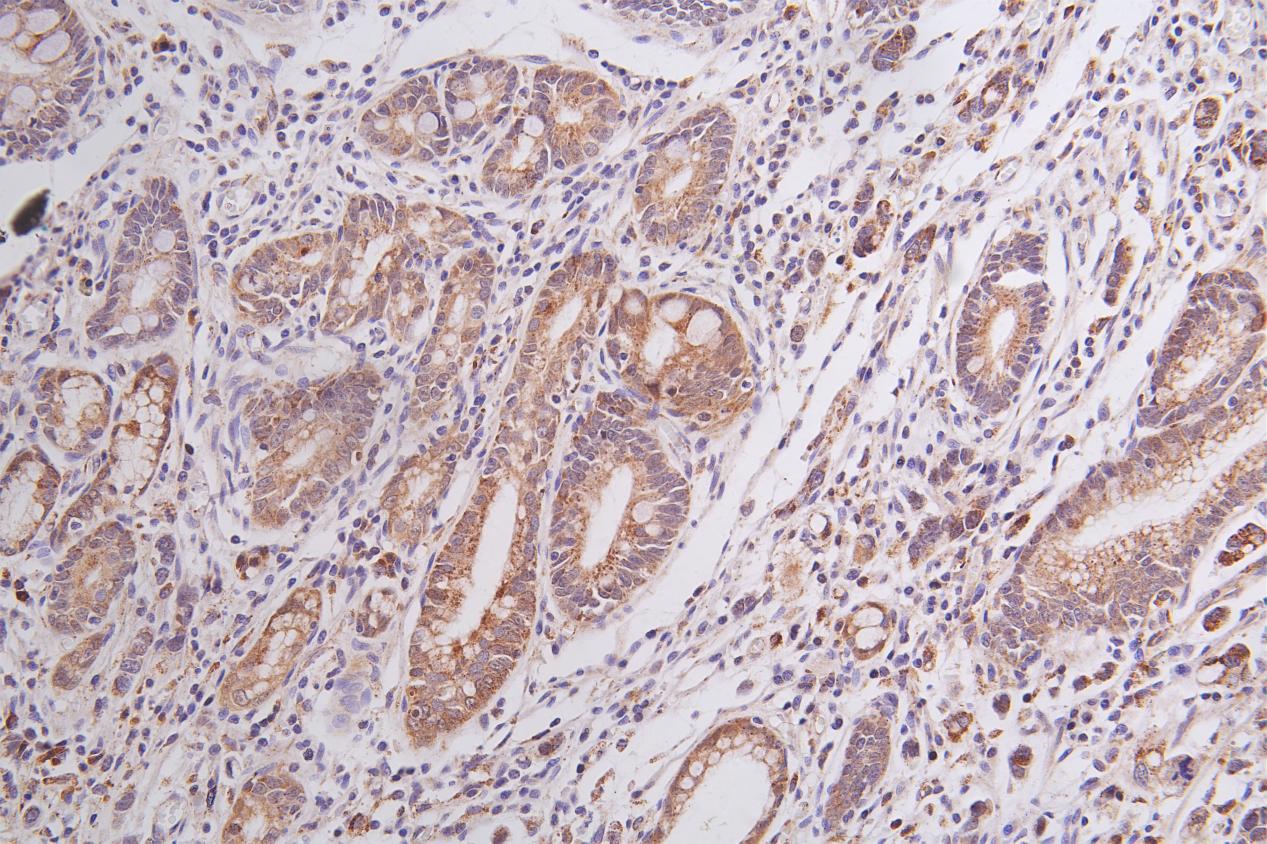Full Product Name
Rabbit anti-Homo sapiens (Human) PMM2 Polyclonal antibody
Alternative Names
AI585868 antibody; BOS_22465 antibody; C86848 antibody; CDG 1 antibody; CDG1 antibody; CDG1a antibody; CDGS antibody; MGC127449 antibody; Phosphomannomutase 2 antibody; PMM 2 antibody; Pmm2 antibody; PMM2_HUMAN antibody
Species Reactivity
Human,Mouse
Immunogen
Recombinant Human Phosphomannomutase 2 protein (1-246AA)
Immunogen Species
Homo sapiens (Human)
Purification Method
Antigen Affinity Purified
Concentration
It differs from different batches. Please contact us to confirm it.
Buffer
0.03% Proclin 300 Constituents: 50% Glycerol, 0.01M PBS, pH 7.4.
Tested Applications
ELISA, WB, IHC
Recommended Dilution
| Application |
Recommended Dilution |
| WB |
1:500-1:2000 |
| IHC |
1:20-1:200 |
Storage
Upon receipt, store at -20°C or -80°C. Avoid repeated freeze.
Lead Time
Basically, we can dispatch the products out in 1-3 working days after receiving your orders. Delivery time maybe differs from different purchasing way or location, please kindly consult your local distributors for specific delivery time.
Description
CUSABIO uses a peptide corresponding to amino acid residues 1-246 of human PMM2 protein as the immunogen to immunize the rabbit to yield the anti-PMM2 antibody. This PMM2 polyclonal antibody is only reactive with human PMM2 protein, a cytosolic enzyme responsible for the conversion of mannose 6-phosphate to mannose 1-phosphate. A complete loss of PMM2 can lead to lethality in yeast, mice, and presumably humans. It exists as an unconjugated IgG isoform. Its purity is 95%+ using antigen affinity purified. And it has been validated to recognize PMM2 protein in ELISA, WB, IHC, and IP applications.
Usage
For Research Use Only. Not for use in diagnostic or therapeutic procedures.







